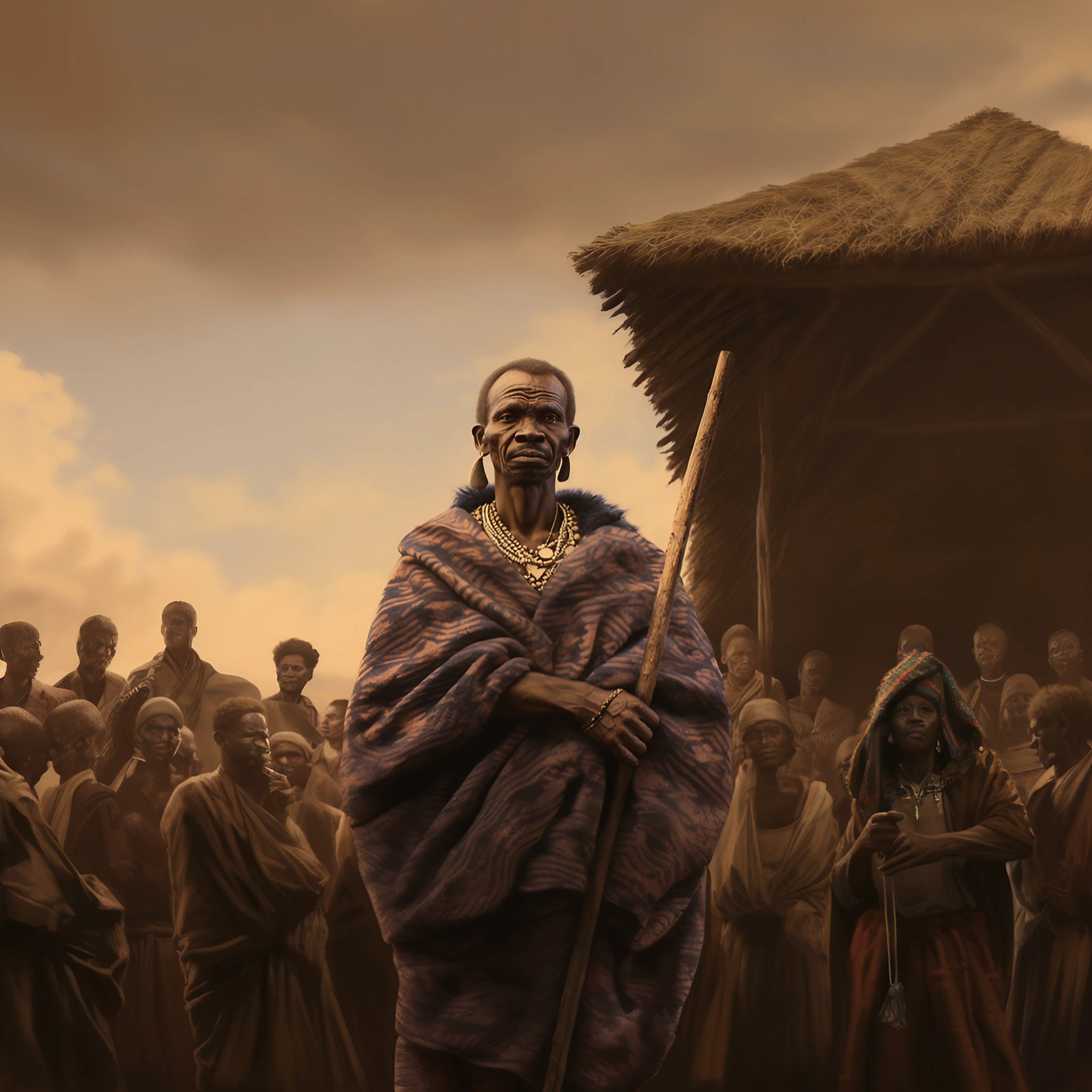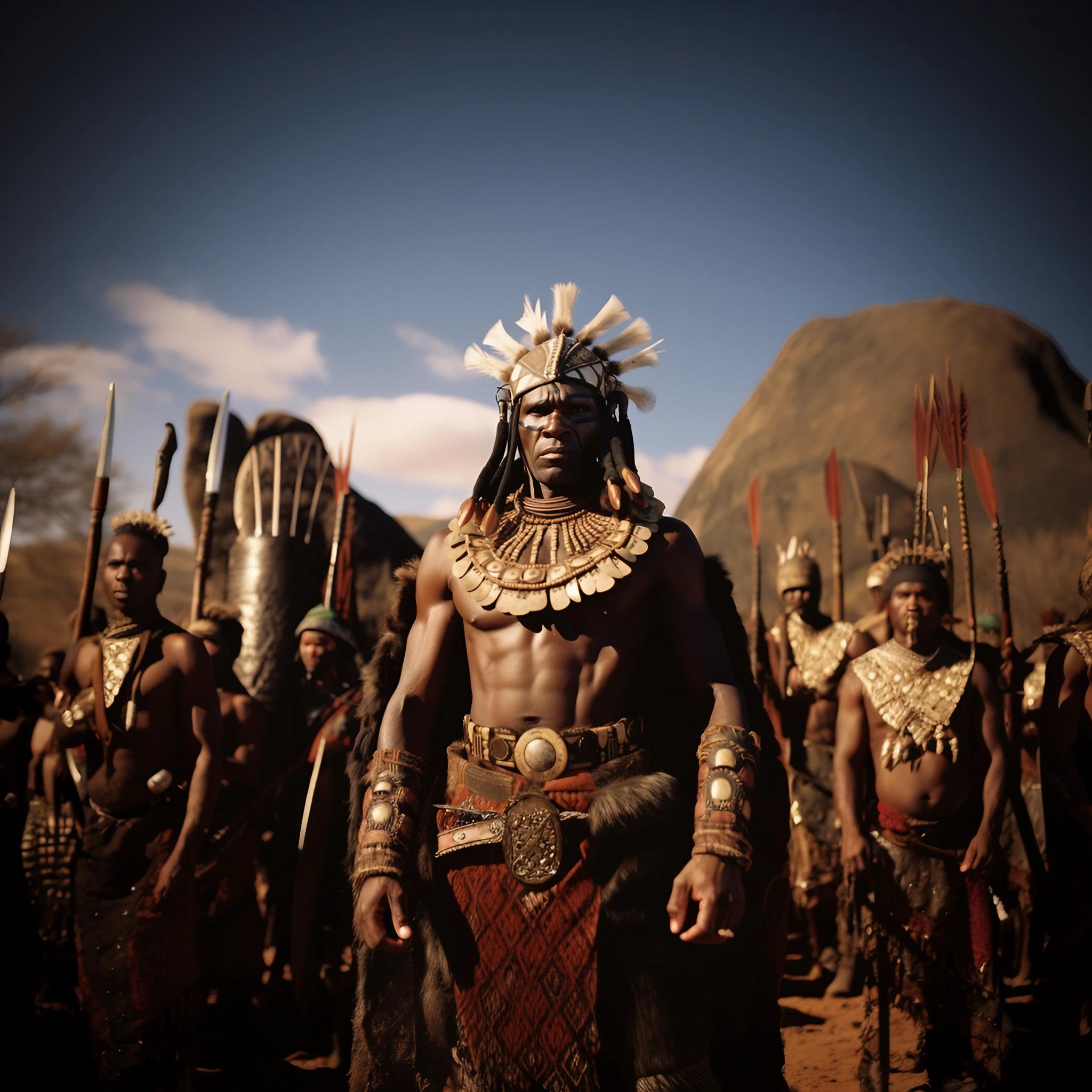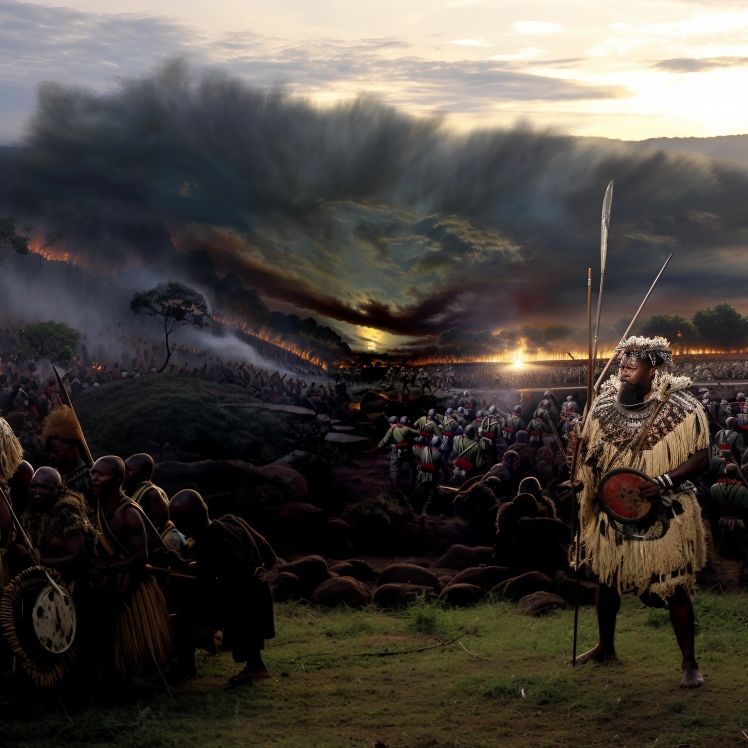African history is full of remarkable leaders, warriors, and innovators who have forever influenced the tapestry of their cultures and the course of their nations' trajectories. Among these great figures stand two colossal personalities: King Sekhukhune and Shaka Zulu. Although their legacies may differ in certain aspects, both men were instrumental in shaping the destiny of Southern Africa.
 King Sekunune (1814 – 13 August 1882)
King Sekunune (1814 – 13 August 1882)
King Sekhukhune, chief of the Marota people, a Pedi tribe, in the Northern Province of South Africa, reigned during the late 19th century. He assumed power during a turbulent period in South Africa's history when indigenous communities were confronted by the encroachment of European colonizers. Sekhukhune is often recognized for his unyielding stance against colonialism, particularly against the Transvaal Republic (later part of modern-day South Africa).
Sekhukhune's leadership was characterized by a diplomatic balance of resistance and accommodation. He used his knowledge of colonial ambition to forge alliances and, when necessary, engaged in warfare to protect his people's independence. His reign, marked by a considerable enhancement of Pedi military might, was instrumental in preserving the integrity of the Pedi Kingdom during volatile times.
Shaka Zulu (1787 – 22 September 1828)
 Shaka Zulu, on the other hand, ruled the Zulu Kingdom in the early 19th century. He is arguably one of Africa's most influential leaders, having revolutionized Zulu military strategy and social structure. Shaka's innovative combat techniques, including the "buffalo horns" formation and the introduction of the short stabbing spear, known as the "iklwa", significantly enhanced the Zulu military prowess.
Shaka Zulu, on the other hand, ruled the Zulu Kingdom in the early 19th century. He is arguably one of Africa's most influential leaders, having revolutionized Zulu military strategy and social structure. Shaka's innovative combat techniques, including the "buffalo horns" formation and the introduction of the short stabbing spear, known as the "iklwa", significantly enhanced the Zulu military prowess.
Unlike Sekhukhune, Shaka Zulu ruled with an iron fist, consolidating numerous tribes into the powerful Zulu Kingdom. His reign was characterized by relentless expansion and military conquest, effectively reshaping the political landscape of Southern Africa.
Similarities
Despite the variances in their leadership styles and eras, several parallels can be drawn between King Sekhukhune and Shaka Zulu.
-
Resistance Leaders: Both men were resolute defenders of their people against external forces. For Sekhukhune, it was the European colonizers; for Shaka, it was rival tribes and, later, British colonizers. They demonstrated unwavering determination in preserving the sovereignty and cultural identity of their people.
-
Military Strategists: Both leaders notably enhanced their respective military capabilities. Shaka Zulu revolutionized warfare strategies, while Sekhukhune bolstered the Pedi's military might to fend off colonial invasion. They understood the necessity of a strong military presence in maintaining their kingdoms' autonomy.
-
Murdered by their half brothers
Shaka Zulu was assassinated by his half-brothers Dingane and Mhlangana in 1828. The motivation for this was primarily power-driven. Shaka had consolidated a vast amount of power and authority during his reign, causing unease among his potential successors. This unease, coupled with Shaka's increasingly tyrannical behavior following the death of his mother Nandi, led to his assassination. After Shaka's death, Dingane became the ruler of the Zulu Kingdom.
King Sekhukhune's murder
The fate of King Sekhukhune was similarly marked by fraternal betrayal. In 1882, Sekhukhune was betrayed by his half-brother Mampuru, in collaboration with colonial forces.
Differences
Despite these similarities, significant differences between King Sekhukhune and Shaka Zulu also stand out.
-
Approach to Power: Shaka Zulu, often described as a tyrant, consolidated power through ruthless military conquests and stringent societal control. Conversely, King Sekhukhune sought to preserve and protect, using diplomacy as well as military force to resist colonial encroachment.
-
Legacy: Shaka's reign, while characterized by military excellence, is also marked by brutal and draconian measures that led to large-scale socio-political upheavals. His legacy is a complex blend of admiration for his military acumen and criticism for his ruthless methods. Sekhukhune, on the other hand, is remembered more for his strategic defense and preservation of Pedi sovereignty against colonial forces. His legacy is largely rooted in resistance and resilience against oppression.
 How colonials viewed Shaka
How colonials viewed Shaka
Shaka Zulu, however, commanded an entirely different reaction from colonial powers. The British, the main colonial force interacting with the Zulu Kingdom, held Shaka in a mixture of awe and apprehension. His military brilliance, proven through his innovative warfare strategies, was evident and threatening to the colonial presence in Southern Africa.
Colonial writings often described Shaka as a savage despot, a portrayal that was likely a mix of fear of his military prowess and a justification for their own expansionist ambitions. Yet, there were also accounts that begrudgingly admired his statecraft and military innovations.
While King Sekhukhune and Shaka Zulu had diverse leadership styles and their reigns spanned different periods in African history, both men made significant impacts in their respective societies. Their legacies live on as robust examples of African resistance, innovation, and determination in the face of external threats and challenges. The comparative study of these two leaders offers a valuable understanding of the complexity and richness of Southern African history.
How colonials viewed Sekhukhune
From the colonial viewpoint, Sekhukhune was both a nemesis and an enigma. His leadership was imbued with a deft blend of military resistance and diplomatic maneuvering, making him a challenging adversary to negotiate with or subdue. While his resistance frustrated colonial forces, his strategic acumen may have, reluctantly, garnered some level of respect from his adversaries.
The London Times, which at the time was not known to report on the deaths of African leaders, published an article on 30 August 1882, acknowledging his resistance against the Boers and the British: “… We hear this morning … of the death of one of the bravest of our former enemies, the Chief Sekhukhune… The news carries us some years back to the time when the name of Sekhukhune was a name of dread, first to the Dutch and then to the English Colonists of the Transvaal and Natal…”.

